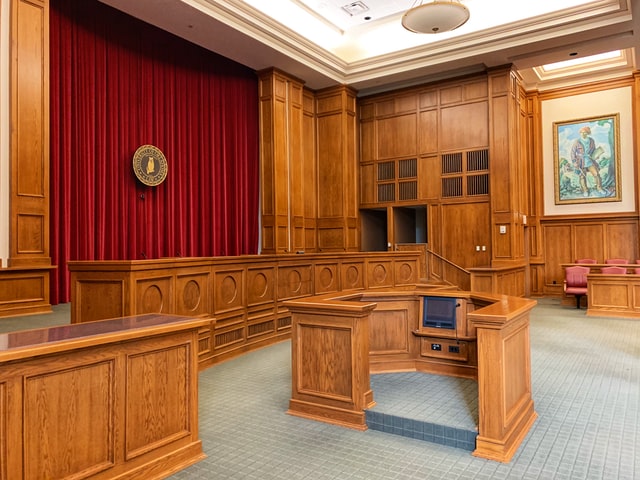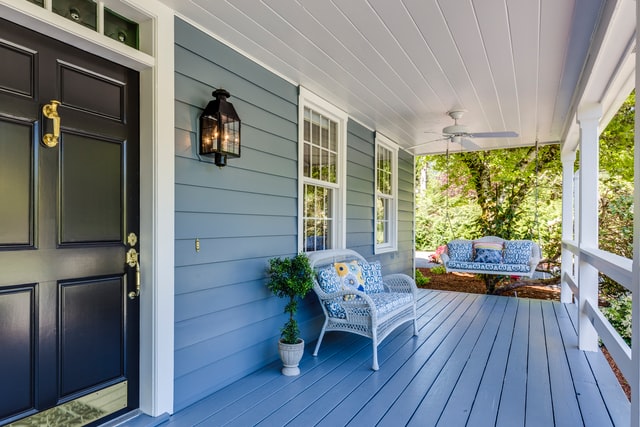
Familiarizing yourself with the Virginia landlord-tenant act is critical for both the landlord and the tenant in Roanoke. Understanding the Virginia landlord-tenant act will provide landlords with the knowledge of what is required of landlords. In turn, this will help landlords avoid potential disputes with the other party.
Keep reading for an overview of Virginia landlord-tenant laws and to learn how JMAX Property Management can provide support for landlords seeking qualified legal assistance.
Tenant Rights & Responsibilities in Virginia
Roanoke, Virginia renters rights under the Landlord-Tenant Act include the right to:
- Live in a dwelling unit that adheres to the city’s health, safety, and building codes.
- Receive a written notification when their landlord wants to alter the terms of the lease agreement or rental agreement.
- Have repairs completed in a reasonable amount of time after requesting them from landlords.
- Enjoy the dwelling unit in peace.
In addition to the responsibilities of a tenant that are outlined in their individual lease or rental agreement, they are also responsible for:
- Abiding by the terms of the lease agreement and any rules or regulations within the lease or rental agreements.
- Pay rent, utilities and bills on time.
- Taking care of the dwelling units and keeping them clean, safe, and free from vermin.
- Not deliberately damaging or defacing the dwelling unit.
- Keeping their noise levels reasonable and ensuring they are not disturbing their neighbors.

Landlords Rights & Responsibilities
As a Roanoke landlord, you have a right to:
- Receive a notice when a tenant wishes to move out of your rental.
- Receive tenant notification whenever important repairs need to be done in the dwelling unit.
- Require a security deposit when a tenant is moving in.
- Collect rent when it’s due, and enforce a late fee when tenants pay rent late.
- Get a notice when a tenant is planning to leave town for an extended period.
As for the responsibilities under the Virginia landlord-tenant act, residential landlords are responsible for:
- Following the proper legal eviction process when they are planning to evict a tenant at any point in the tenancy.
- Providing their tenant with the right notices and disclosures when necessary.
- Providing tenants with a rental that meets the city’s habitability standards.
- Responding to requested repairs promptly.
- Giving tenants adequate warning when looking to enter their rented premises.
- Ensuring all tenant information and records are kept private and confidential.

Required Landlord Disclosures
- Defective Drywall: A defective drywall has been designated by the U.S. Consumer Product Safety Commission as a defective product. It could also contain elemental sulfur exceeding ten parts per million. Virginia residential landlords must disclose if the rental has defective drywall that has not been repaired by their tenant. (Source: Virginia Realtors)
- Lead Paint: The presence of lead paint in a housing unit is also something that landlords are required to disclose to his/her tenants.
- Mold: The landlord must disclose evidence of mold within the interior of the rental as part of the written report for move-in inspection.
- Sale of Property: If the rental changes hands in the middle of a tenancy, then the landlord must disclose certain details. This includes the name and address of the new owner.
- Property Previously Used to Make Methamphetamine: If the landlord has any knowledge that the unit was previously used in the manufacturing of methamphetamine and that it was not cleaned properly they must disclose this information to their tenant. (Source: Offit Kurman https://www.offitkurman.com/blog/2015/03/26/virginia-law-requires-landlords-to-clean-or-disclose-former-meth-labs-to-lease-applicants/ )
An Overview of the Landlord-Tenant Law in Roanoke, VA
1. Privacy Rights
In the state of Virginia, landlords must provide their tenants with notice before entering their rented properties and must enter at a reasonable time of day. For routine maintenance entries, the written notice should be at least 24 hours. If the entry involves the application of pesticide or insecticide, the notice should be at least 48 hours.
If the tenant made a maintenance request, the landlord is not required to provide them with notice before entering the renter. In the case of an emergency, the landlord may also enter the rental without the tenant’s consent or notice.
If a landlord enters the dwelling unit unlawfully or repeatedly to the point of harassment, tenants may obtain an injunction to prevent the landlord from continuing these actions. They may also terminate the lease or rental agreement.
2. General District Court
In Virginia, this court hears and determines civil cases involving failing to pay rent, etc.

This court is where the landlord will file a lawsuit to start the eviction process. Landlords may want to hire a court attorney familiar with Virginia laws for the eviction.
3. Withholding of Rent
Tenants in Roanoke cannot withhold rent for any reason under the local Landlord-Tenant laws.
However, if a landlord fails to provide a livable rental at any point in the tenancy, tenants have the right to file a claim against the landlord in court.
4. Security Deposits
Virginia Landlord-Tenant Laws do not allow landlords to collect a security deposit worth more than two months of rent. At the end of a tenant’s lease agreement, they may apply security deposits towards unpaid rent, damage repairs, or other damages for terminating the lease or written rental agreement.
If the landlord withholds any of the security deposit, they must provide their tenant with an itemized list of any deductions or charges within 45 days of the end of the written lease. Landlords may also withhold a portion of the security deposit towards any unpaid utility or water bills.
For more information on the statewide security deposit laws click here.
5. Housing Discrimination Laws
In Virginia, just like all other states, discrimination regarding housing is illegal. Under federal and state laws, it’s illegal for landlords to discriminate against prospective tenants and follow through with an eviction on current tenants based on disability, familial status, sex, national origin, religion, color, race, or age.

6. Warranty of Habitability
The following are some basic elements that make a property habitable:
- Functioning locks.
- Properly maintained railings, stairways, and floors.
- Adequate garbage receptacles.
- Effective weatherproofing on the windows, walls, and the roof.
- Properly functioning plumbing, heating, lighting, and electrical facilities.
- Clean and vermin-free grounds.
7. Pet Laws
Landlords may decide to increase the rent or charge an extra cost for a pet-friendly property. If the landlord allows pets, the lease should clearly state pet laws. That said, federal regulations require landlords to make appropriate accommodations for tenants who have service animals.
Disclaimer: This blog shouldn’t be used as a substitute for legal advice from a licensed attorney in Roanoke, Virginia. Regulations change from time to time, and this post may not be updated at the time of your reading. Additionally, landlords can learn more about attracting and keeping quality tenants in our post here.
Contact JMAX Property Management if you are a landlord who has questions about Virginia landlord-tenant laws, evictions, or renting out properties.
Disclaimer: Please note that the information provided in this blog is intended for general guidance and should not be considered as a replacement for professional legal advice. It is important to be aware that laws pertaining to property management may change, rendering this information outdated by the time you read it.


